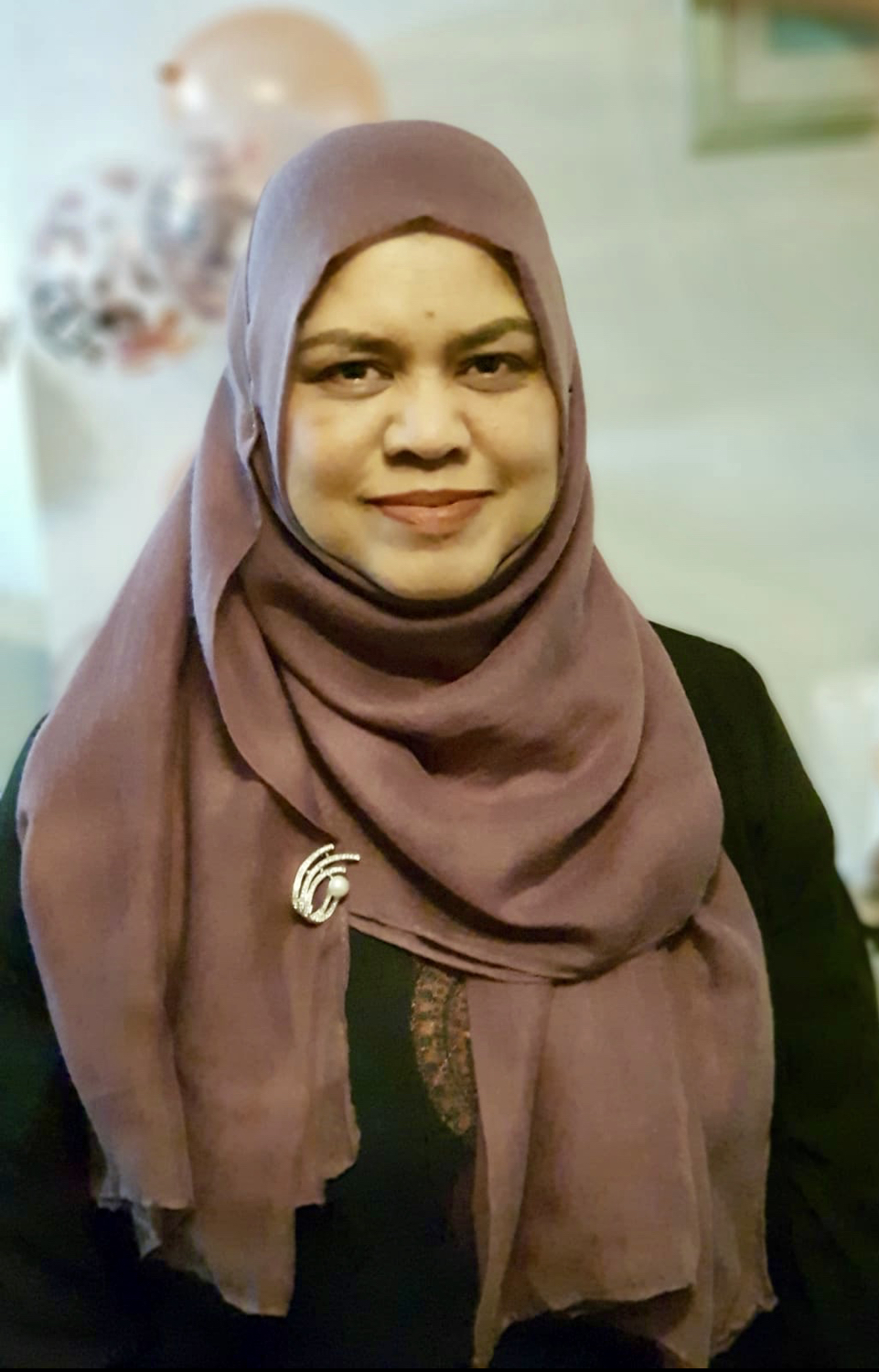Coping with your loss and allowing yourself to grieve: It is so hard that it still hurts.
We all say that nothing is definite or permanent in life. How true is this. That’s not the whole truth, and one thing is surely definite and permanent, that is Death. Death of a loved one, a family member or a friend is something we will all experience at least once in our lifetime and for many it is much more then once.
When that loss is your loved one specially a parent, your world suddenly stops. Loneliness appears in the blink of an eye and all ties seem insignificant. The world seems to become a scary place that you may not have experienced before. Helplessness, sadness and the lack of inability to express what just happened, breaks you so much that the emotions leaves your own body. The experience of the tightness in your throat, heaviness across your chest, and pain around your heart almost feel as you are about to die.
This is my feeling, which never goes away when I think about my dad and the feeling is the same as the day we were there until his last breath. If comfort at all, we can say we were there with him all the way through, just like he wanted. I am constantly aware of his absence in everything I do in life, as both the happy moments, remembering with fondness and the sad moments where I just need that reassuring figure over my shoulder.
I lost my beloved dad six years ago this year, and the emptiness is so profound, that it tears my heart the moment I talk about him in third person. My dad, a tall, well built 6 feet something, handsome man, with the biggest smile possible, even in adversity. His love of people is unshakable and his wanting of family gathering unmistakable. His love for his daughter’s unquestionable. I remember him each Friday afternoon dressed in his white attire waiting outside the front gate looking immaculate, to see his grandchildren first. Smiling at us as always and saying you are late again today.

We sit together at the family dining table with all the siblings and grandchildren planning and having a laugh. An instant reassuring that we are there together and will always be there. We often forget that the cycle of life means you are born, and you will surely die one day. Today that chair at the table remains empty. A constant reminder that our loss is so real and so permanent.
So losing a parent do you really truly grieve and how do you manage this grief? Does it ever go away? For me it is something life teaches us to deal with. Life is a continuous cycle that needs to carry on. The grief never goes away but you learn to hide it, what I call the private grief. Some people grief by visiting the grave of their parents and speaking to them. Mine is through my faith and prayers, and praying that he is in a better place now, pain free.
Our grief is very different. For some when you’re grieving, it feels like nothing else is happening in the world. Others will say everything in the world is fake and pretentious without their loved ones. That is when your inner strengths need to have a more profound presence in yourself. Some of our real strength lies in our two internal wings of love and wisdom our parents have given us. This becomes our security base, our source of strengths and builds that strength of responsibility towards our living parent and our siblings. The moment I realized that my dad’s death has not only affected me but my weakness at his loss has more impact on my siblings. My grief becomes secondary and even more private. The face of an emotional person hides somewhere where I hear my dad saying, “you need to be strong”.
The sole purpose of me is to keep my dad’s values and aspirations alive, and that is to keep my siblings at the top of my priorities. Keeping them happy is what my dad has always wanted and that is what needed to happen.
What you need to think about when dealing with the death:
This is my way forward and surely not saying that this works for everyone. When I reflect I am not sure if it actually works for me either, as each day and each situation of grieving is very different even for me.
The first thing is to be able to accept that loss is a basic part of our life cycle. Whatever or whoever is born must die. These are universal laws of nature and god’s creations. We must never forget that our physical bodies are mortal and all of us will one day cease.
That includes all plants, animals, people, buildings, cities, the planet earth, and the sun, which we know as the end of life and the world. That is the science and most religious beliefs states as facts that physical universe is temporary. When we as human being understood and accepted this fact, we will begin to seek our inner sources of security and happiness.
We will be in a better position to accept our own loss and may be able to then accept and confront our own death. Death of our loved ones forces us to look deeper into the nature and purpose of life our life values and goals: Seeing death awakens us to the fact that someday we too will die and what is that we all want to leave behind.
This generates a number of questions for me and may be for others. Will we have fulfilled our life purpose and what is our purpose? Why have we come here to the earth? How can we live our lives more in harmony with that purpose? Whether that is the purpose of family, religion and others?
Answering these questions might motivate and improve our character, purify our love, investigate the deeper truths of life. Encourage us to change our life style, live a more meaningful existence. We may also discover that life is more meaningful when we value others and their needs.
I find my answers in my own reflection in my religion and prayers. Knowing that I can pray for my dad and I can open my heart to a higher being who is listening to me and asking me to seek what I want. He is looking after my dad. I take comfort from that everyday.
However there are other explanations form a Psychological view:
Psychologist, William Worden, Ph.D., (Internet Google search, Grief and Loss, 2017) has explained the tasks of grief. These tasks are discussed below. Working through your grief can take many, many months or years and for some a never-ending part of life. Worden explains that:
1. Accepting the reality of loss.
When a loved one dies, people often experience a sense that it isn’t true. The first task of grieving is to come to the realization that this person is gone, and that reuniting with him or her, at least in this life, will not happen. Some families talk about they sense their loved one’s presence through sound, sight, smell or touch. Whether or not these experiences are “real” is a matter of belief. However, they are common and not a sign that one is “going crazy”.
2. Working through the pain of grief.
One of the goals of grief counselors is to help people through this difficult time, so that they do not carry their deep pain with them throughout their entire life. Those people who allow themselves to feel and work through the deep pain find that the pain lessens. Some things may prevent this experience. Friends, relatives, and co-workers may give subtle or not so subtle messages to “pick yourself up and go on” as if nothing has happened. Or, sometimes family members cut off their feelings and deny that pain is present. Allow yourself the time to cry or to be angry. Allow to have time with your family. They are also grieving the same loss.
3. Adjusting to an environment in which your loved one is no longer present
Your loved one had a special place in your heart and in your family. They can never be replaced or compared with. But bereaved families can eventually adjust to the absence of a loved one. This process might involve finding new ways of interacting with your surviving family members and friends and relatives.
4. Withdrawing emotional energy and reinvesting it in other relationships
Many people misunderstand this task and believe it means forgetting about their loved one. They believe that this would be dishonoring their loved one’s memory. This task is simply a continuation of the first three tasks. It involves the process of allowing yourself to make relationships with others. It does not mean that you care any less about your loved one or that you will not keep your special memories.
5. Rebuilding faith, beliefs and values that are tested by the loss of a loved one.
The loss of a loved one can test your faith and philosophical views of life. Talking with a spiritual leader or advisor such as an Imam, a rabbi, priest, minister or holy person may be helpful since they have experience counseling others who have experienced a loss. Sometimes there is still sadness, though it does not come as often and is not as draining.
Over time and through life the pain of your loss becomes part of your life. We can all feel that we will begin to remember our loved one without experiencing the unbearable pain, but we don’t always achieve this. Although the sadness is there it will be a different kind of sadness. Look beyond your anger of your loss and deal with it positively with people around you. Remember your living parent has more grief then you, and their loss is greater in many ways. They have lost their life partner, their companion their sole mate. Their loneliness is heart breaking. Be there for them and take comfort that you have a parent to share your feelings with. Love them unconditionally while remembering they need you more now then ever.
I cherish my dad’s memories always and the memories are my life. His values and his unconditional love give me the strengths to be who I am and what I can be for my children, my husband, my siblings and rest of my family. Continue to live his legacy and keep making him proud by continuing his dream. To my siblings, he would never wanted to see you unhappy, sad and giving up anything in life, or stop your life in any way. In turn what we should do is to keep our faith strong, and keep him in our prayers: We owe it to him!!
Originally published at medium.com


